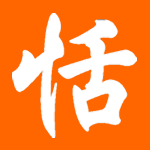(original)
The top character 米 means “rice”, and in Japanese, it is used to represent “America”. Second character 盖 means “cover, hide, protect”.
Last character 丸 means “small round object; pellet, pill”. However in Japanese, it means “circle, perfection, purity, and suffix for ship names” and “testicle/balls” in Chinese, as in 睾丸.
The tattoo may be a phonetic name translation or a ship’s name in Japanese, but when I read it:
“rice covered balls”


If the name of the picture is right, that guy intended to have "Amor de Madre" written, which means "A mother's love" (typical Spanish tattoo , by the way).
ReplyDeleteSeems it didn't turn out right in the end... as always.
(I am glad you used the link I posted a couple of days ago... I guess you would have material there for ages and ages of hanzismatter (-: )
Oh! They EVEN have a gallery specific for Kanji! http://www.tatuadores.com/simbolos_kanji.htm.
ReplyDeleteSeems their wolf (lobo) is having a nap... :-D
(I won't bother you any longer with links, I promise)
I don't think it's Japanese.
ReplyDeleteIt's almost impossible for a ship's name. Besides, the second character is not in use in modern Japanese.
Is this meant to represent "マイケル丸" which can be a ship's name? 米盖 is Michael in Chinese, I understand, but not so in Japanese.
we have some pretty dirty tattoos today, don't we.
ReplyDelete米盖尔 is Chinese translation for "Miguel".
ReplyDelete迈克尔 is "Michael".
*giggles*
ReplyDeleteI agree on the second kanji, it means nothing to me and I'm a Japan person.
I think he wanted it to say America the Beautiful.
ReplyDeleteLooking for a more experience cantonese speakers response...
ReplyDeletebut in Cantonese, it sounds like they are saying, "Mai hup yuen!".. meaning "Don't cover the balls!" Mai is preposition you would use to convey, "don't!" in a sense of urgency.
咪盖丸
but of course, then it would be this 米 instead of 咪
or is that an adverb and not a preposition.. anyways.. it sounds like "don't cover the balls!"
For the curious, the third kanji is the "maru" from Kobayashi-Maru, the famous ship from Star Trek.
ReplyDeleteI'm not a native Cantonese speaker, but it seems 盖 should be 盍 to be read "hup" in Cantonese.
ReplyDeleteI wonder if the second character is supposed to be 善 (zen in Japanese; meaning "good") so that the whole thing is 米善丸. 米善 could be a Japanese name read Yonezen or Komezen, so that 米善丸 might be a ship named the Yonezen-Maru or Komezen-Maru.
ReplyDeleteStill, this is an unusual name and would be a very obscure reference that most Japanese people would not get.